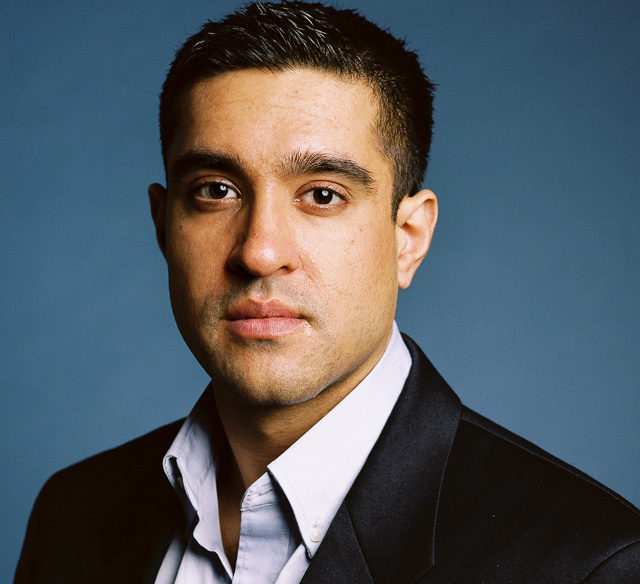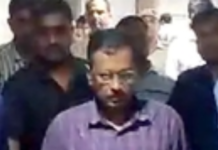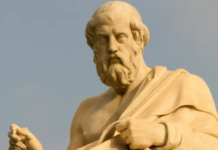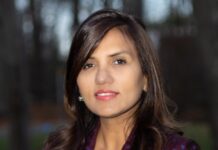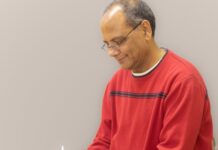By Dr. Anant Shukla, MD
(Editor’s note: Anant Shukla is a flight surgeon in the United States Army. He is currently deployed to a forward operating base in Afghanistan.)
With the warm August sun beaming against the back of my neck, I walked into a well-kept park in Tacoma, WA, and scanned for quiet place to sit. A wooden bench in front of a pond with a fountain seemed perfect, with just the right amount of sun and shade. I sat down and took a deep breath in to enjoy the scenery; brown dirt trails meandered through the well-trimmed green grass, towering oak trees provided a respite from the heat, it was a perfect summer day.
I had become extremely unhappy in my surgical residency, which subsequently led me into an intense period of soul searching. As such, my extracurricular reading list pretty much consisted of the entire self-help section at the library. In combination with a variety of TED talks and YouTube compilations of motivational speeches, I had literally built my own curriculum on self-improvement. The odd thing that I noticed in reading all of these “manifestos for greatness” and listening to the torrents 5-minute “pep talks,” was that much of everything that these self-described “gurus” proclaimed remained amorphous and oddly similar.
I still bought into it though; I read through the books as if were going to be tested on them. I took notes, highlighted, and read out loud to myself to help me remember what I read. Sitting on the bench I took out Simon Sinek’s book, “Start with Why,” along with a notebook and a highlighter. I started reading out loud, but not too loudly as to draw the ire of the other people in the park.
Out of my peripheral vision I noticed a haggardly dressed male approach me.
“Start with Why,” the homeless man forced the words out from his mouth. The pungent smell of cheap alcohol emanated from him like a halo of a landing aircraft. Overall, he had an average build but his stance seemed both threatening and demanding. Standing now just three feet away from me and making eye contact, my hand reached into my right pocket and grasped my pen.
I took a deep breath in, stared back at him, and muttered casually, “Yeah, have you read this book?” I released the pen as he shook his head and laughed, “No I only read one book,” he said holding up something leather bound, “the Bible.”
“Oh,” I chuckled, “Well that’s certainly a good book, do you read often?”
“Whenever I can,” he replied.
“Well,” I paused, “You know I can read out loud to you if you want,” I said, shocking myself as the words came out of my mouth.
The homeless man looked at me stunned, and paused, “You would read out loud to me?”
“Yeah, I read out loud anyways it helps me remember what I’m reading.”
The homeless man then plotted right down right next to me on the grass with the excitement of a child, “Yes, please! My name is James by the way!”
“Ok James,” I laughed, and I began reading out loud, “The golden circle, represents the…”
As I read each page, I could see James ponder each line with his hand resting on his chin then shifting to caress his temple. Occasionally he would apologetically interrupt me, asking me to repeat a line. Then he would blurt out, “I know this stuff man, the stuff you’re saying, it’s true.” I kept reading as other park visitors walked by, eyeing the scene with intrigue and nothing more.
I took a break and drank from my water bottle. We had been reading for over 1 hour now and it was around 4pm.
“I have to go get dinner,” James said.
I looked at him quizzingly, “And how do you plan to go about doing that?”
“You know hold up my sign by the grocery store. Everyone tries to get their food from the grocery store right about now. Hopefully someone can give something up,” James stated.
I thought about what he said for a few seconds. “Well how about I buy you dinner.”
James looked at me, his hands clasped together in feigned prayer as his head bowed to the ground with respect. “Yes, Yes, Yes, please keep reading.”
I kept reading.
After a while, I asked James where he wanted to eat. He suggested a gas station which I promptly dismissed and instead suggested a deli across the street. James initially seemed confused by the options on the menu but eventually decided on a large Italian meatball sub. I happily paid for it and we walked outside.
I had plans to meet some of my medical school classmates later and told James that I needed to go. I reached out, and shook his hand. His calloused palm and fingers felt like sand-paper in my grip. For some reason looking into his gaze through my sunglasses I got the sense that he was stunned by the element of human touch, as if someone had lifted up his cloak of invisibility after a long time.
Letting go of my hand, James spoke deliberately and with intention, staring into me, “I have not had any of this sandwich yet,” clutching the 9-inch sub to his soiled red flannel shirt, “but I already feel full. You have done something good today,” he stated his voice filled with a genuineness.
I felt good inside, but that fleeting organic sense of doing good was not something I sought out when I bought him dinner. I had been searching for something to enlighten me through the grind of residency and so I sought out some personal development. I dove into a whole range of self-help books, but the humanism was lacking. Both James and I were both going through our own personal “tough times,” though in vastly different circumstances; however, our interaction provided a small amount of human context for what I had been reading.
The opportunity to buy James dinner presented itself in a way that needed to be acted on. Self-improvement comes up in multiple formulations in self-help books and here was the chance to be “the servant,” “take extreme ownership,” “lead from the front,” “start with why,” or any of the other variety of phrases that self-help gurus promote. In the often recurring trap of negativity surrounding our lives that draws us to purchase to self-help books and attend seminars, bringing joy and hope to another human is often the best way to make that small step to break through personal challenges, and involves something simple:
Empathy.
(Anant Shukla is a flight surgeon in the United States Army. He is currently deployed to a forward operating base in Afghanistan. Prior to attending medical school at the Uniformed Services University of the Health Sciences, Captain Shukla was an AmeriCorps teacher in the Baltimore City public school system. In his spare time he enjoys writing and hiking. The views expressed are those of the author and do not reflect the official policy of the Department of the Army, the Department of Defense or the U.S. Government.)



